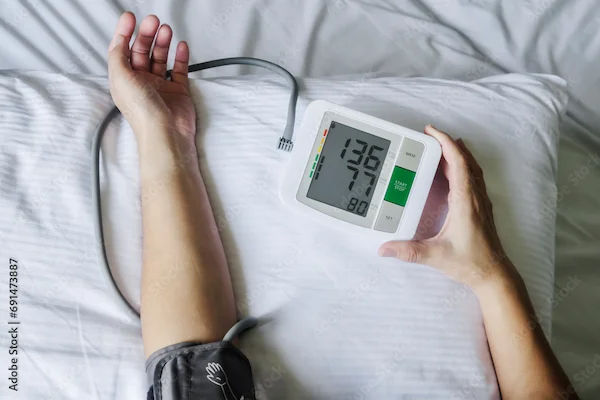- female
- 30 Years
- 29/01/2025
I'm really worried about my heart rate. I was prescribed Propranolol 20 MG for anxiety and palpitations by my cardiologist, but when I started feeling uncomfortable with light chest pain, I went to another cardiologist who told me to stop taking it. So I did, and I felt normal for a day, but then my heart rate jumped from 85 sitting to 145 standing the next day. I'm scared to go to the hospital because my heart rate might increase even more. If it's already at 140 just standing, I can't imagine how high it would go while working. Is this something very serious? Also, my blood pressure at night was 130 after eating and 127 before eating while I was on the medication, but it hardly ever went over 120 before all this. If just two days of using Propranolol caused these withdrawal effects, how am I supposed to handle this medication for the long term? I'm living in constant fear of dying. Can you help?
Answered by 1 Apollo Doctors
It sounds like you are experiencing significant anxiety and palpitations along with withdrawal effects from Propranolol. The sudden increase in heart rate upon standing is concerning and may indicate a condition called orthostatic intolerance. This needs to be evaluated further by a healthcare professional. To address your symptoms, you can try the following: - Discontinue Propranolol under medical supervision to avoid withdrawal effects - Practice relaxation techniques such as deep breathing or meditation to help with anxiety - Stay well-hydrated and maintain a healthy diet - Avoid sudden changes in posture to prevent orthostatic intolerance In the meantime, it is important to consult with a cardiologist or a healthcare provider for a proper evaluation and management plan. They may consider alternative medications or therapies to help with your symptoms. Remember, sudden changes in heart rate and chest discomfort should not be ignored. Take care.
Dr. Shubham Suggests...
Consult a Cardiologist
Answered 04/07/2025
0
0

More Cardiology Health Queries
View allI've been feeling some pain in my throat when I swallow, and it's really uncomfortable. Plus, every time I move, I get this chest pain, and both of my arms are just aching so badly. What could be going on here? Is it something I should be worried about?
These symptoms could be indicative of a viral infection or inflammation. To help alleviate your symptoms, you can take over-the-counter pain relievers such as acetaminophen (Tylenol) for the chest and arm pain. For the throat pain, you can try lozenges containing benzocaine (Cepacol) to numb the throat. Additionally, you can use throat sprays like chloraseptic for relief. Make sure to stay hydrated and get plenty of rest. If your symptoms persist or worsen, it is advisable to consult a healthcare professional for further evaluation and management.
Answered by 1 Apollo Doctors
I'm dealing with anxiety and I've been getting treatment for it, but I still feel this mild, constant pain or sensation in my chest. I had an ECG, TMT, and an echo done and all the reports came back fine. What could this mean?
That could be Gastritis or GERD once check with Gastroenterologist .
Answered by 1 Apollo Doctors
I'm dealing with mild diastolic dysfunction, tricuspid regurgitation, and mitral regurgitation. My left ventricular ejection fraction is 55. I'm a little concerned and just wondering how often I should see a cardiologist. Can you tell me more about my current condition? Is it okay for me to do regular activities like climbing stairs? And do I need to change anything about my diet or eating habits?
Having LV diastolic dysfunction, along with TR and MR, all mild, with LVEF of 55 means you have a mild heart condition. You should visit your cardiologist regularly for follow-up appointments to monitor your condition. It is recommended to see your cardiologist at least every 6-12 months or as advised by your doctor. In terms of your present condition, with mild LV diastolic dysfunction, TR, and MR, and an LVEF of 55, you are in a stable condition. You may continue with your normal daily activities, including chores and climbing stairs. However, it is important to avoid excessive physical exertion and follow a heart-healthy diet. For your heart condition, your cardiologist may prescribe medications such as ACE inhibitors like Lisinopril or ARBs like Losartan to help manage your blood pressure and reduce the workload on your heart. They may also recommend beta-blockers like Metoprolol to help improve heart function. Additionally, diuretics like Furosemide may be prescribed to reduce fluid buildup in your body. Remember to follow your cardiologist's advice closely and attend all scheduled follow-up appointments for proper management of your heart condition.
Answered by 1 Apollo Doctors
Disclaimer: Answers on Apollo 247 are not intended to replace your doctor advice. Always seek help of a professional doctor in case of an medical emergency or ailment.



